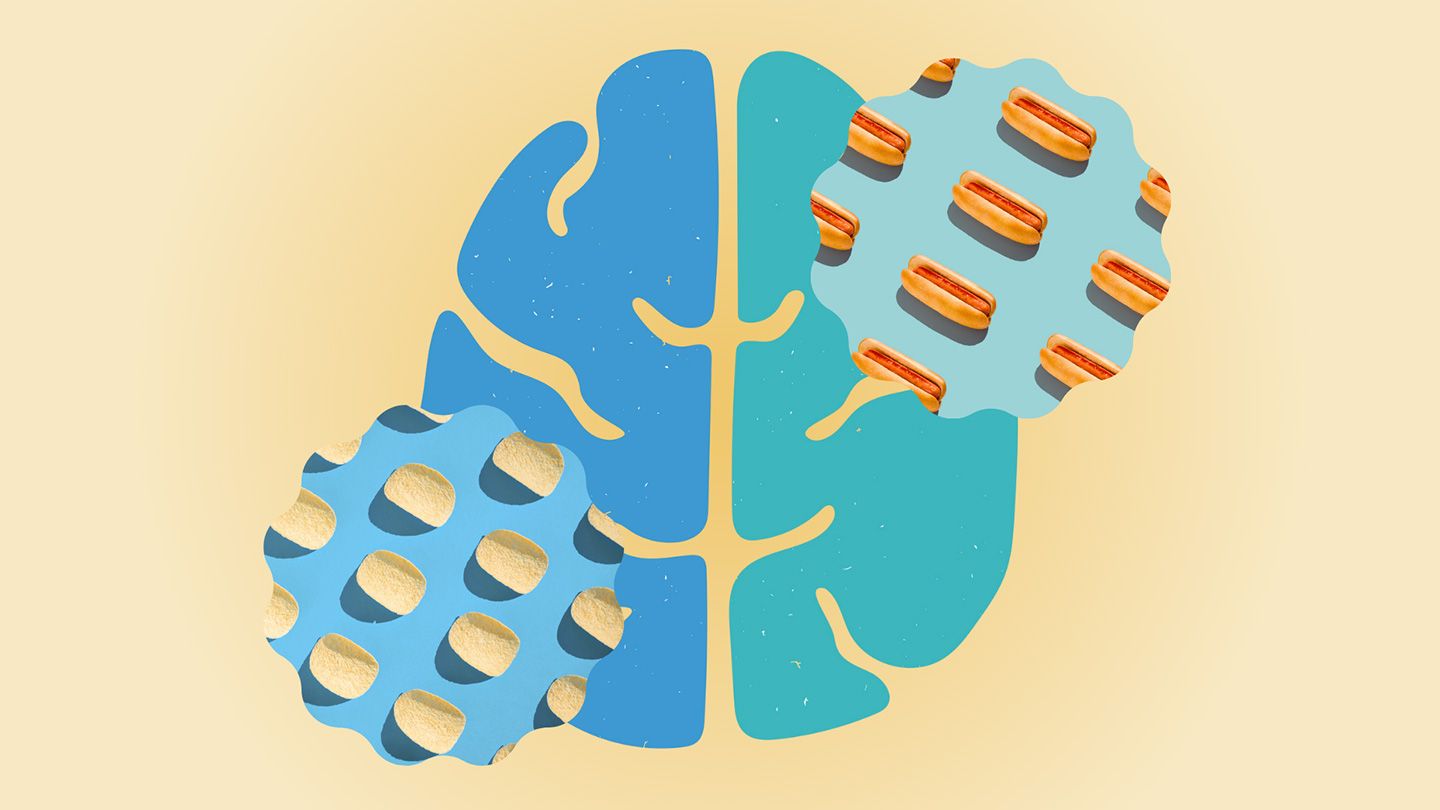Very early signs of Parkinson’s disease include:
- Rapid eye movement sleep behavior disorder, where people physically act out their dreams while asleep
- Constipation
- Depressive symptoms
- Body pain
- Impaired color vision
- Excessive daytime sleepiness
- Reduced ability to smell
Diet Is a Modifiable Factor That May Affect Parkinson’s Risk
Diets High in Ultra-Processed Foods More Than Doubled the Risk of Early Parkinson’s Signs
For the new analysis, scientists set out to see whether ultra-processed foods might influence the odds of having very early signs of Parkinson’s.
These signs, called prodromal symptoms, mark the earliest stage of neurodegeneration, and can appear years or even decades before the start of more commonly recognized Parkinson’s symptoms, such as tremors.
This research included more than 40,000 adults who were 48 years old on average. None of the subjects had Parkinson’s disease at the beginning of the study.
During follow-up of up to 26 years, participants had regular medical exams and completed health questionnaires that helped determine if they had early signs of Parkinson’s. Participants also filled out a food diary every two to four years, listing what they ate and how often.
Dr. Gao and his team identified many different types of ultra-processed foods including:
- Sauces, spreads, and condiments
- Packaged sweet snacks or desserts
- Artificially or sugar-sweetened beverages
- Animal-based foods, such as hot dogs
- Yogurt or dairy-based desserts
- Packaged savory snacks
One serving was equivalent to a single can of soda, 1 ounce of potato chips, one slice of packaged cake, a single hot dog, or 1 tablespoon of ketchup.
After calculating how many ultra-processed foods participants ate on average per day, the scientists separated individuals into five groups. The group with the highest consumption of ultra-processed food ate 11 or more servings per day on average, while the group with the lowest consumption ate an average of fewer than three servings per day.
Eating more ultra-processed foods was associated with a greater risk for nearly all the early symptoms except constipation.
The study authors stress that the results only show an association — they don’t prove that ultra-processed foods cause Parkinson’s.
While the findings were based on a large number of participants, researchers note that the subjects self-reported which foods they ate and how much, which may not be accurate.
Eat Right for Better Brain Health
Jessica Ng, MD, an assistant professor of adult neurology at Stanford Medicine in California, regards these findings as further evidence that diet can make a difference in Parkinson’s disease risk.
“I think this study can change the way doctors should counsel patients on dietary changes,” says Dr. Ng, who was not involved in the research. “It is not just about what we should be eating, but what we should not be eating that matters, too.”
To support brain health, Ng advises her patients to follow a Mediterranean diet or MIND diet, and to limit the intake of ultra-processed foods.
Ultra-Processed Foods May Increase Inflammation in the Body
There are many possible reasons as to why ultra-processed foods may increase the risk of Parkinson’s, according to Ng. These include the use of food additives and chemicals that may lead to oxidative stress — a molecular imbalance that can lead to cell damage.
Oxidative stress, she says, can trigger an inflammatory response that may harm the gut microbiome or decrease production of dopamine.
Dopamine is a neurotransmitter that plays a vital role in regulating movement. Reduced dopamine can result in motor symptom irregularities such as those seen with Parkinson’s, including tremors, rigidity, and slow movement.
Read the full article here




